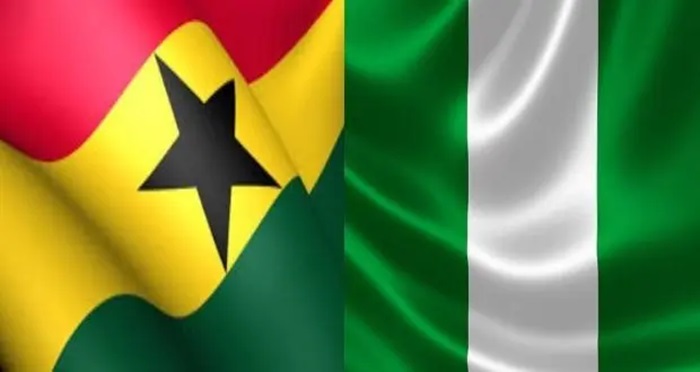The enduring rivalry between Ghana and Nigeria continues unabated. The healthy rivalry spans debates over culinary delights like jollof rice, the dominance of Afrobeat music, movies, comparisons of currency strength, and even light-hearted banter among comedians.
This friendly competition, whose origins remain elusive, persists across diverse aspects of culture and society. While one victor may momentarily prevail, the pendulum often swings back and forth.
Interestingly, despite Nigeria’s lack of a shared border with Ghana, the two nations exhibit unique chemistry on social media, surpassing interactions with neighbouring countries.
The battleground of this rivalry extends onto the digital landscape, where armed with only a smart device and internet connection, users engage in spirited exchanges and sharp retorts. It’s a virtual war zone where survival depends on quick wit and strong rebuttals.
These two countries spar across all spheres of society, adding a dynamic layer to their enduring relationship.
Since Nigerians claimed superiority in jollof rice flavour and asserted ownership over Afrobeat, the rivalry between Ghana and Nigeria has been reignited.
From boasting about their thriving movie and music industries to asserting dominance in gas supply, each claim has fueled the flames of competition. However, the intensity reached new heights with #AFCON2023. Following Ghana’s early exit from the tournament and Nigeria’s advancement to the knockout stage, trolls on social media began taking jabs at Ghanaians.
The confidence of the Nigerian social media contingent surged, while Ghanaians hoped for Nigeria’s elimination. However, their wishes were thwarted as South Africa, Ghana’s hope for silence on rivals Nigeria, fell to the Nigerian Eagles in an “Amapiano Derby”.
Stemming from both countries arguing over who owns the Amapiano genre, it was only fitting for netizens to dub it an “Amapiano derby.” As the Nigerians secured their place in the finals, a sense of foreboding descended upon Ghana, despite our team being out of the competition.
Kwame Nkrumah’s Black Stars had become the sole target of ridicule, exclusively from Nigerians. At this juncture, Ghanaians resigned themselves to enduring the impending onslaught of noise pollution on social media.
Nigerian netizens issued warnings and took swipes at Ghana’s currency performance, footballing prowess, and music industry’s comparative inferiority. With little recourse, Ghanaians could only hope for a miraculous turnaround to send the Nigerian team packing.
All signs pointed to Nigeria as the likely victors of the tournament, with football experts confidently predicting their triumph. This heightened the anxiety among Ghanaians, who pinned their hopes on our neighbours to the East, Ivory Coast. A victory for the Ivorians would mean a welcome respite from the incessant noise pollution from our perennial rivals.
Proud and resolute, Ghanaian supporters readied their arsenal, poised to unleash a barrage of taunts aimed squarely at Nigeria’s pride should they falter in the tournament’s final. Meanwhile, Nigerians vowed to silence Ghanaian voices should they emerge victorious in the AFCON showdown.
Winning would not only secure their own victory but also increase Nigeria’s tally to match Ghana’s four-time AFCON championship score, earning them more troll points, a predicament Ghana hoped to avoid. Regardless of the outcome, one thing remained certain: there would be no escaping the repercussions, echoing the sentiments of Nigerian artist Davido, “Dem go feel it.”
All too soon, the finals of arguably the most interesting and entertaining AFCON kicked off. Our only hope to stave off ridicule from Nigerians was Ivory Coast. One thing was for sure, even if the Ivorians lost, Ghanaians were going to bear the brunt. We needed to avoid that at all costs.
The Eagles soared high in the first half, securing an early lead. By half-time, Nigerians had already begun to taunt Ghanaians. One thing was certain for Ghanaians: hope seemed lost. Everyone knew how resilient this Nigerian side was; they weren’t likely to concede the early goal easily.
The second half would determine who would have the last laugh. The Elephants answered the cries of Ghanaians, equalizing in the second half and reigniting hope. Oh, what joy it was when the Ivorians added a second goal until the referee signalled the end of the match. Ladies and gentlemen, Nigeria finds itself in trouble as you read. Since their defeat, they have not known peace.
Their unstable electricity, poorly performing currency, their president, and their social media posts are still being used to mock them. The banter continues; let’s see what will reignite this rivalry once more.
Source: Citinewsroom

